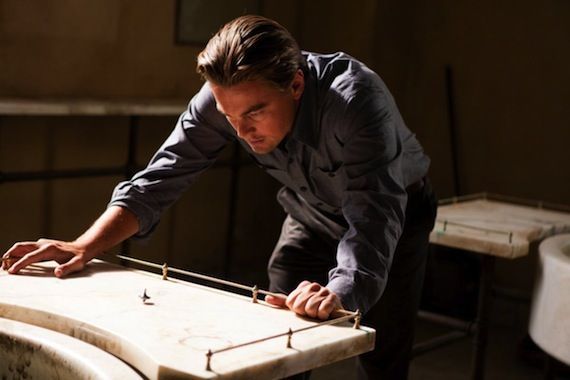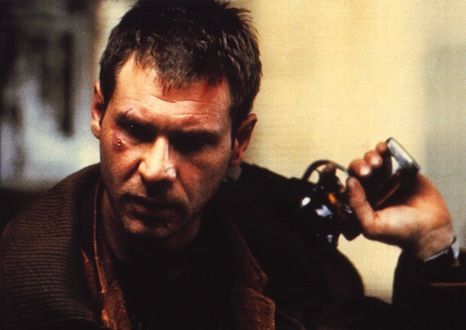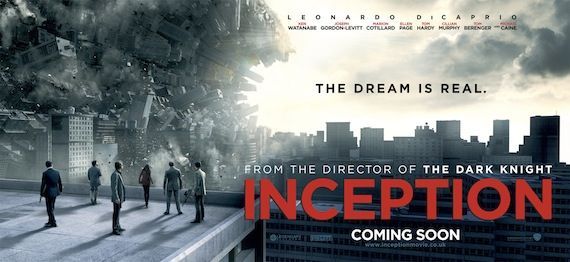As Inception slowly approaches, the buzz has become slightly more patronizing than exciting: fans across the world are being told that they might not understand the film. But this really is an absurd sentiment, and is one that I feel has caused big-budget films to - in general - get dumber and shallower.
But it's not your fault - and don't let Hollywood tell you otherwise. It's not your fault that Transformers 2 made $836 million worldwide, while Blade Runner only made $33 million domestically when it was released. It's just the nature of the Hollywood business.
There are 52 weekends in a year. Across the world, millions seek entertainment for escape and the intrigue of visual stimulation. But when a malnourished public craves something a little more meaty, Hollywood continues to throw bread crumbs. And people eat it up, because often it's all they have to choose from.
However, the most discerning moviegoers dig for those gems that sit buried beneath the piles of Hollywood coal - those films that stretch the mind and cure the soul, rather than milk the cow. But it shouldn't be such an arduous effort; is it really too much to ask Hollywood for $100+ million movies that are not digestible in a single two-hour sitting?
Audiences are a hungry breed. They want to have something to eat every single weekend and studios spend months preparing those meals. Yet, often there is nothing to "digest" at all - there is no substance to the meal, i.e. nothing for an audience member to contemplate later. It simply is what it is: filler, a snack, empty calories. Yet, as much as we complain about fluff films - as most summer blockbusters are - we all flock to the next big blockbuster. Maybe we just don't know any better?
Personally I don't believe the fault lies with people who go to see every big action blockbuster. Those films are churned out of filmmaking machines that have little train of thought, yet, our eyes are not bigger than our stomachs. Once we leave the theater, there is an emptiness, we all feel it, even if there is a lingering "wow" factor.
So, when a film like Inception comes around and combines brain with brawn, many viewers are not sure what to do. We are being presented with a film that is not only visually appealing, but might actually cause the brain to do some work. People often say they want these films, but Hollywood just doesn't quite understand that - Hollywood forgets about films that have become staples of the industry - masterpieces like Blade Runner or Shawkshank Redemption. None of those films turned heads at the box office - but maybe they could have, with the right marketing scheme and intentions behind them. Maybe the would have, if Hollywood valued the "smart blockbuster" as a legitimate blockbuster - the very strategy Warner Bros. seems to have for Inception.
We live in an age where many executives know only how to fumble around your pocket, with no interest in anything else besides the bottom line. Hollywood has brainwashed the public into thinking they can't comprehend anything beyond a MacGuffin device that will end the world (see: Knight and Day). That formula has worked for decades (thanks in large part to Alfred Hitchcock, the master of brainy spectacle), but the industry has fallen in love with the formula, while taking audiences for granted.
By offering the same tired formulas, Hollywood has helped create the faux perception that people don't like anything they don't understand upon first viewing - that is to say if it doesn't fit the formula, it simply doesn't fit. Yet, look at forums on Websites just like ours: the films people talk about the most are ones that sprouted new ideas in their minds upon repeat viewings, continued analysis and extensive discussions - exactly what smart films do.
It is a valid argument to say that Hollywood simply adjusted to the trends of audiences. If more people went to see a small indie film over a big-budget action romp, then maybe the entertainment world would be following another path. But audiences don't generally have that option - there are only a fraction of arthouse offerings that get wide exposure, as opposed to the crowd of popcorn blockbusters that fill every theater at your local multiplex. And because of that disparity, choices are limited (hopefully the increased interest in first-run movies offered on demand will reverse this trend).
Despite what some people think, I don't necessarily believe the industry would be a better place if the tables were simply turned. I still love the big action epics that utilize CGI and strange humor. But just like everybody else, a huge part of me craves the intellectual possibilities of film. I want to have my knowledge tested - I want to leave a theater with the idea that I might be wrong. Instead, I am hypnotized by bright lights, big explosions and beautiful people who act in a world that doesn't require me to think for two hours - and, ironically enough, in large part those are the same films which will be forgotten (or rebooted) in a decade or less.
I should point out that Leonardo DiCaprio has mentioned that Inception shouldn't be that difficult to comprehend as they talk about the concepts and the actions at length within the film. The characters are experiencing this newfound journey with the audience in real-time.
My bottom line is: we are smarter than Hollywood often wants treat us. Bring on Inception and give my brain the same workout my eyes and ears will get; I'll be showing my support with my wallet, and if you too would like your big movies to be more meat than fluff going forward, perhaps you should too.
What do you think about the industry's focus these days? Do you want more movies that make you think? Share your opinions in the comments section below.
Inception hits theaters on July 16th.




